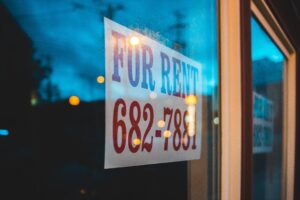Does Your Business Need Libel and Slander Insurance?
As a NYC business owner, you’ve most likely done everything you can to protect your business from the obvious predators, like theft, fire, and even lawsuits. But there are other culprits that far too few business owners purchase protection for because they believe the risks are too low to warrant coverage costs.
For superior protection, libel and slander insurance should be on your list of coverage types to purchase. Without it, a single claim against your business could be the end of it and in today’s technology-driven world, it doesn’t take long for a seemingly innocent comment to fall on the wrong set of ears, leading to crippling litigation costs, whether your business is guilty or not.
Take a moment to learn more about what these types of defamation are, and how to protect your business with libel and slander insurance.
What Is Libel?
Libel refers to the making of malicious and false statements about a business or individual in the form of print or writing. This could include handwriting, standard print, or a public forum, including the internet.
Simply put, libel is defamation of character. If your business damages the good reputation of the character of an individual or business, whether intently or not, you could find yourself with a libel claim against you.
What many businesses don’t realize is that it’s much easier to find yourself guilty of libel than they think, especially if there are several employees involved.
Consider this example. Sarah works for a large clothing company. While running some errands, she happens to notice a few garments from a competitor that look similar to those in her store. Without doing any research, Sarah posts online that the competitor has stolen designs from not just her company, but others as well. She also claims they treat their employees poorly and are an embarrassment to the clothing industry. The post attracts some attention and eventually makes its way back to the competition. They claim the post has led to loss of reputation and sales.
In a situation like this, a few things need to take place to prove libel has occurred. First, the statement needs to be proved as false. The statement also needs to have been shared with a third party and done so with the intent to harm. In certain situations, plaintiffs must also prove that the statement made resulted in special damages.
What Is Slander?
Slander is similar to libel, in that it’s a form of defamation, but it’s a verbal statement rather than a written one. Slander can be a bit trickier to decipher though so keep these differentials in mind.
In order to be considered slander, the statement must be false, but told to others as if it was true. For example, if an employee claims they saw the CEO of another company out at a bar making inappropriate advances towards several women, even though he’s married, this could be considered slander (as long as it either wasn’t the CEO or the employee misjudged the interactions).
An example of a situation that wouldn’t classify as slander would be your company expressing their disappointment with a vendor, whether claiming their customer service is poor or their prices are too expensive. If the statement is based on personal experience, it does not qualify as slander.
How Serious Are Libel and Slander Lawsuits?
So, how much can a defamation suit cost you? The financial amounts can greatly vary but the damage to your reputation and brand can be catastrophic. Consider the following real-life examples.
On January 26, 2014, a front-page article in the New York Times about libertarianism and Senator Rand Paul was featured. The article included direct quotes from Walter Block, a teacher at Loyola University. Block brought a defamation suit against the newspaper giant because he believed his contributions, though accurate, were included without other necessary context. The results left readers with the notion he was racist and in favor of slavery. The case dragged on for several years but ended with a non-monetary settlement. However, litigation and public relations costs were surely astronomical.
An August 24, 2015, BuzzFeed article became the center of a defamation lawsuit between the news outlet and a competitor, Central European News. The Buzzfeed piece claimed that most of the material featured on Central European News was inaccurate or downright false. The BuzzFeed article was written around the investigation of 41 Central European News pieces, and 11 proved to be false or embellished based on images that were not part of the story. Central European News brought the $11 million suit against BuzzFeed only to have it quickly dropped by a judge. However, many experts have expressed their concern that Central European News was in fact defamed.
Imagine a defamation lawsuit coming across your desk in the morning. Settling or having to pay damages is the least of your concerns. Instead, finding legal counsel and starting to defend yourself immediately is the most important. This is where libel and slander insurance comes in.
Protect Yourself with Libel and Slander Insurance
Obtaining proper coverage isn’t as simple as just choosing to buy an insurance policy that covers slander and libel claims. You must also choose the right amount of coverage. While insurance is one purchase no one wants to ever need, the litigious society we live in means that is not the case. With this in mind, it’s important to get a sufficient amount of coverage for your NYC business without going overboard and investing in too much.
This is why you need to work with a highly respected agency that understands the insurance needs of New York City business owners. More importantly, work with an agency that has a history of serving the area and understands all the liability coverage needs New York City business owners need, including libel, slander, and defamation coverage among many other types of liability insurance for NYC businesses.
For instance, businesses with greater risks, such as newspaper and magazine businesses, even some bloggers, have a greater risk since they print so many written words and may not always adhere to the stringent fact finding, corroboration, and source requirements. These types of NYC businesses definitely need higher coverage amounts of libel, slander, and defamation coverage.
In addition, in the era of social media, more courthouses are seeing social media slander and libel suits as well. If your small business utilizes social media channels, such as Facebook and Twitter, to engage customers and promote your brand, it’s wise to consider if you’re at risk for libel or slander claims. The same goes if you publish a newsletter for your company, whether it is delivered in print or online through email.
Many business owners assume that their general liability coverage extends to all liability claims, but that isn’t the case. The general liability coverage included in the standard Business Owner’s Policy, or BOP, is limited in its coverage. That’s why it is necessary to understand your business risk and be sure you’re adequately protected.
The best defense against libel and slander claims is a solid policy and outstanding employee training on what can and cannot be said without facing potentially crippling consequences. Working with an independent NYC insurance agency ensures that you get the coverage you need and that you’re not overburdened with unnecessary insurance coverages or amounts.



